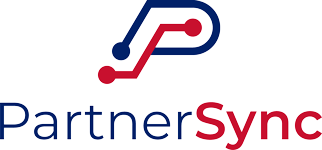Cash Basis Accounting vs Accrual Accounting Bench Accounting
If your business makes less than $25 million in annual sales and does not sell merchandise directly to consumers, the cash basis method might be the best choice for you. It’s important to note that this method does not take into account any accounts receivable or accounts payable. This is because it only applies to payments from clients—in the form of cash, checks, credit card receipts, or gross receipts—when payment is received. As long as your sales are less than $25 million per year, you’re free to use either the cash basis accounting or accrual method of accounting.
- Can be more complicated to implement since it’s necessary to account for items like unearned revenue and prepaid expenses.
- Using the cash method, you record income when you are paid and expenses only when you pay them.
- Cash accounting doesn’t conform to these well-known accounting principles.
- However, the cash basis might not always give you a true picture of your financial health.
What Are the 3 Accounting Methods?
The primary downside irs audit of accrual accounting is that it is more complex and time-consuming than cash accounting. Small business owners may have to devote more time to managing their books or accept the additional expense of hiring an accountant. We’ll explore the key differences between cash and accrual accounting, who can use each method, and their implications for taxes. We’ll also look at the advantages and disadvantages of each so you can find the right method for your small business needs. Many small businesses opt to use the cash basis of accounting because it is simple to maintain. It’s easy to determine when a transaction has occurred (the money is in the bank or out of the bank) and there is no need to track receivables or payables.
Cash vs. accrual accounting: What’s best for your small business?
Keeping a real-time total of income and expenses also makes it easier to flag unpaid transactions so you can follow up with your customers. That being said, the cash method usually works better for smaller businesses that don’t carry inventory. If you’re an inventory-heavy business, your accountant will probably recommend you go with the accrual method. Let’s look at an example of how cash and accrual accounting affect the bottom line differently. We’ll use a hypothetical web design company, and examine a zentrepreneur life month of transactions.
The complexity of your business
On the other hand, accrual accounting records revenue and expenses when those transactions occur and before any money is received or paid out. The main difference between accrual and cash basis accounting is the timing of when revenue and expenses are recorded and recognized. Cash basis method is more immediate in recognizing revenue and expenses, while the accrual basis method of accounting focuses on anticipated revenue and expenses. It’s more accurate, and if you manage inventory, it’s the method the IRS requires you to use. With cash-basis accounting, you won’t record financial transactions until rules of trial balance money leaves or enters your bank account.
Additionally, if your customers can pay you for products on credit, you should be using the accrual accounting method. Otherwise, you and your investors won’t have an accurate understanding of your finances. Because it offers a more accurate long-term look at your finances, accrual-basis accounting is the right method for most businesses. However, if your business isn’t very complex, you might be able to use the simpler cash accounting method instead. The accrual accounting method tracks earnings and expenses when first incurred, rather than waiting to document them when money gets received or bills paid.
Can be more complicated to implement since it’s necessary to account for items like unearned revenue and prepaid expenses. Let’s say you complete legal work for a client and invoice the client in January, but the client doesn’t pay until March. The income is still recorded in January, even though the client hasn’t yet paid. In Quickbooks, you can choose either Cash or Accrual as your accounting method.
You can also run reports that use either method, so you can compare how your finances look with each. You’ll need to do this if you want to claim expenses at the end of the year. And you’ll need one central place to add up all your income and expenses (you’ll need this info to file your taxes).
Accrual accounting uses the double-entry accounting method, where payments or reciepts are recorded in two accounts at the time the transaction is initiated, not when they are made. Accrual accounting provides a more accurate picture of a company’s financial position. However, many small businesses use cash accounting because it is less confusing. This method arose from the increasing complexity of business transactions and a desire for more accurate financial information. Selling on credit and projects that provide revenue streams over a long period affect a company’s financial condition at the time of a transaction.
